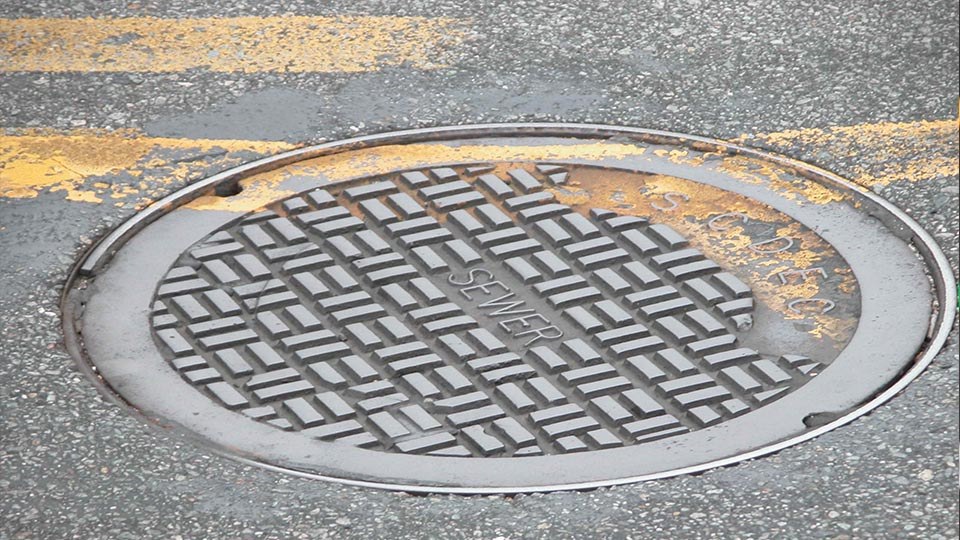Interview questions can be pretty tough. Employers know if an employee is qualified to do the work before they walk into the interview. The real question is how does each perspective employee react to situations outside of their control. Many companies ask the same old questions but a few have gotten really creative. Let’s take a look at some great answers to some tricky interview questions.
1.Question: What would you do if the Internet went down?
This question is posed as a simple problem solving exercise. The lazy and uninspired would probably just call IT and let them deal with it. A more practical approach would be to figure out if it’s something that’s happening inside the building only or if there is a regional outage. For bonus points, offer to work from your home internet or even take your laptop to your local WiFi hot spot and work from there.
2. Question: How many skis are sold in Sweden every year?
Answer: This classic question can be asked a number of different ways but the point is the same. The boss is asking you how you’d go about finding out this information. You can say that you’d use Google Search to find data such as the population of Sweden, how often people replace their skis, and perhaps sales records from companies that are local to Sweden. It’s not about finding the answer but how you go about finding the answer.
3. Question: Tell me about a time you had to deliver some bad news.
Answer: It’s all about how you deal with giving bad news. If you’re a doctor the reason for this question is uncomfortable but fairly obvious. If you’re in management you may have to fire someone. The key is to tell them that you plan on rehearsing your answer and that you show compassion when delivering bad news. It’s one of the hardest things to give bad news so the more tactful you can be, the better the answer will sound.
4. Question: What is your guilty pleasure?
Answer: Choose something that you can do that isn’t shameful or embarrassing. For instance, my guilty pleasure is watching TV show marathons. I once watched an entire season of Star Trek: The Next Generation in two days. Something like that is a good answer. Talking about how you like to go out and get smashed wasted on alcohol is a bad answer. Just use common sense.
5. Question: What is your favorite day of the week?
Answer: Any day of the week that isn’t Friday, Saturday, or Sunday. Employers want to hear you say that you enjoy work. This question is commonly asked to people applying to places like Amazon where the culture is that of a workaholic. You want to answer Monday, Tuesday, Wednesday, or Thursday and tell them it’s because you like being busy. The weekend is coming anyway, there’s no need to glorify it in your job interview.
6. Question: Will you be out to take my job?
Answer: Under no circumstances should you tell the boss that you’re out for his job. Instead, placate them. State that you would probably like his job in a number of years after s/he has moved up the ladder. That way you don’t have to hide that you’re looking for a higher paying job with more responsibility and it shows that you’re willing to work with your boss to move up together. That’s a win-win.
7. Question: What is your biggest weakness that is really a weakness and not a strength?
Answer: Well the classic workaholic answer gets thrown out the window. What you want to do is choose a character trait that is really a weakness but in a way that is still work appropriate. Business Insider recommends saying something like telling your boss that you’re impatient and you expect people to do their jobs correctly the first time. You can then wheel back and state that you deal with this weakness by letting people know that they’re not doing their jobs correctly and offer to help. That’s a winning answer.
8. Question: You have changed careers before. Why should I pay you if you’re going to change again?
Answer: This is a tough one to answer because frankly you’d switch careers again if you needed to. Instead of committing, explain the benefits of having switched careers before. Let them know that your prior careers have given you experience and a diversity of problem solving skills that allow you to approach issues more creatively.
9. Question: Tell me a story about the last time you had to apologize to someone.
Answer: This question (that’s clearly not a question) is specially crafted and asked to see how you deal with being wrong. Here’s the thing. It’s not about what you did wrong. It’s about what you did afterward. Be sure to choose a mistake from which you learned and grew. Tell them what you learned about your mistake, how you fixed it, and why you won’t do it again. Whatever you do, don’t deny that you make mistakes. Frankly, that is really stupid. We’re humans, we all make mistakes.
10. Question: What would you do if you found out your best friend at work was stealing?
Answer: I hate this question, don’t you? Thankfully, there is a good answer. Tell your boss that you want to know the severity of the theft. If it’s like a couple of paper clips, you’ll remain loyal to your friend. If it’s something truly heinous you’ll have no choice but to turn them in. After all, your friend is putting your job at risk too by letting you know about it.
11. Question: Here’s a somewhat large number listed in random order. Find the missing number.
Answer: These are tedious and annoying but there is a reason. This is meant to test your attention to detail. There is a really good way to do this called the Sieve of Eratosthenes. Here’s how it works. You go through and find all the numbers that are divisible by two and cross them off. Then do it again with three, then 5, then 7, then 11, etc until you find the missing number. The key is to use prime numbers. Check the link above to learn more about it.
12. Question: Do you think you’ll ever be so angry that you’ll quit?
Answer: This is actually a trickier question than you think it is. If you tell them you’ll never get that angry it actually shows a lack of passion. Getting angry means you care and not getting angry means you don’t care. The best way to answer is to admit that you may get frustrated every now and then but then talk about how you manage your anger so that it doesn’t become a problem.
13. Question: Why do humans have two eyes?
Answer: Questions like this get asked fairly frequently although the content of the question may be different. The idea is to get you to think outside the box. For this, there is a right and a wrong answer but the right answer may lead to more difficult questions. The point is that bosses are trying to get you to think about something you may not know a lot about. Don’t get frustrated, answer to the best of your ability, and if you don’t know then create an educated guess and explain why you guessed that way. It’s better to try than to say you don’t know because that shows a lack of creativity and critical thinking skills.
14. Questions: Should poetry be difficult to understand?
Answer: This is another one of those brain teasers that are designed to make you think. Like the last one there is no right or wrong answer. However, it is important to consider other people before yourself. If poetry is difficult to understand than it obviously has a deep meaning. However, if it is too difficult there’s no way our children will ever understand it and may never read it. It’s all about compromise, thinking of others, and having a conversation. All of these traits are important.
15. Question: Why were you not promoted at your last job?
Answer: Your boss is essentially asking you if you’re a good worker. People who get promoted regularly are those who are perceived to be better workers than those who were deemed not worthy for promotion. The key here is to emphasize that you were working hard to help in any way you could. It was through loyalty to the company that you worked that long without a promotion.
16. Question: Why is the vision of our company important to you?
Answer: This question is meant to flesh out what you know about the company. Under no circumstances should you answer with statements like how they pay you money or had a job opening. Before going into the interview you should do some research about the company and see if there’s anything you like about it. If so, use that as your answer. If not, simply state that you like what they’re doing and that it’s a team you can see yourself being a part of.
17. Question: How would your peers describe you?
Answer: This question is all about self-awareness and with a question like this you need to cherry pick answers from both sides. You should pick a few traits that people like about you but make sure to pick a couple of things that people don’t like about you. Bosses like to hear that you’re human and they love hearing that you’re aware of your flaws.
18. Question: What motivates you to get out of bed in the morning?
Answer: The question may seem pretty simple but there is a lot of meaning behind it. What your boss is trying to figure out is what motivates you. They need to know that when things get rough, you can always find a reason to keep working hard and doing your best. That means it’s important to choose an answer that’s universal and constant. You may think kids are a good answer but consider this. If you have a 15-year-old, your motivation is only living at home for another three years before your motivation goes off to college, moves out, or otherwise leaves. Your boss may not think you’re motivated after that happens.
19. Question: Why are manhole covers round?
Answer: This is actually not a trick question disguised as a trick question. There is a real answer to this question. Manhole covers are round because that prevents the lid from falling into the sewer. This is a question that questions your common sense. These sort of questions have an obvious answer that people who pay attention would know. Here’s hoping you’ve been paying attention to, you know, life.
20. Question: How much would you charge to wash all the windows in Seattle?
Answer: Many of these questions are designed to look simple but are really complicated. This is exactly the opposite. This sounds complex but it’s actually extremely easy so don’t over think it! You may be trying to figure out how many windows are in Seattle and give a ballpark figure for all of them in the millions of dollars range. Seriously, just say tell them that you’d do it for $15-$20 per window and you’re done.
Interviews are getting increasingly difficult. Employers want smarter employees that can do more for them than just their basic jobs. Creativity and hard work are equally as important. Be prepared for the interesting questions!
Featured photo credit: Details.com via details.com














































